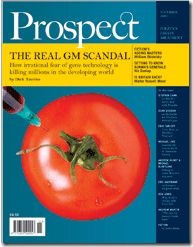So it’s been pretty tough this week, as Faithful Reader might imagine, and we’re dipping our toes gingerly back into the blogging sea tonight.
Nevertheless, we’re all about doing the right thing here at Left-Handed Complement, and in that spirit we’re recycling some of yr (justifiably) humble svt‘s favorite electrons. And, with nearly 470 fresh daily posts in the past 16+ months, the recycling process has an exceptionally rich vein to mine.
I hereby stop apologizing for resuming our observance of the prime directive of blogging: Thou Shalt Blog Daily!
And, I’m guessing that most of you weren’t here nine months ago. As one of my favorite paper publications used to say as they flogged unsold back issues: “If you haven’t read it yet, it’s new for you!”
Blast from the Past!
A post we really, really loved to write, and read, and re-read…
From last fall, originally posted November 13, 2007, and with a woman vice presidential candidate, more germane than ever, titled “mm193: Fuel without oil, or corn.”
MUDGE’S Musings
It’s been an ongoing theme (here, here and here) at Left-Handed Complement: the pandering, wrong-headed concentration on corn derived ethanol as the U.S. main alternative to Saudi (and Nigerian, Gulf of Mexico and North Slope) petroleum to fuel our transportation system.
This past weekend, the NYTimes featured a fascinating look at non-corn alternatives to powering our SUVs.
For years, scientists have known that the building blocks in plant matter — not just corn kernels, but also corn stalks, wood chips, straw and even some household garbage — constituted an immense potential resource that could, in theory, help fill the gasoline tanks of America’s cars and trucks.
Mostly, they have focused on biology as a way to do it, tinkering with bacteria or fungi that could digest the plant material, known as biomass, and extract sugar that could be fermented into ethanol. But now, nipping at the heels of various companies using biological methods, is a new group of entrepreneurs, including Mr. Mandich, who favor chemistry.
The conceptual problem with ethanol from corn has always rested in the strong suspicion that the energy required to process corn to burn in one’s automobile exceeds the yield of energy so created.
Ethanol from corn is a political hot button, especially for all of the presidential campaigners prostrating themselves before Iowa’s farmers — isn’t it high time to divest this country from its inappropriate emphasis on Iowa and New Hampshire in the primary process?
You don’t see Georgia influencing election trends, and yet:
In Georgia alone, enough waste wood is available to make two billion gallons of ethanol a year, Mr. Mandich said. If all that material could be captured and converted to fuel, it could replace about 1 percent of the nation’s gasoline consumption.
[Please click the link below for the complete article — but then please come on back!]
Fuel Without the Fossil – New York Times
Obviously, there are some very bright people working hard at solutions, made increasingly economically attractive as the baseline of comparison to petroleum-based fuels persists in climbing inexorably toward $4/gallon.
And, corn-based or not, it looks like ethanol is going to be the end result of all of this chemical creativity, since it’s ethanol that has the Congressionally mandated tax credit.
MUDGE used to believe that the fuel cell guys had the answer, but what with the way the real world works, I can’t see corner hydrogen pumps popping up in many neighborhoods in my lifetime. So chemically derived ethanol will have to do.
Good to see U.S. innovation persists. Like the current IBM advertisements proclaim, it’s easy to say, and so very much more difficult to actually do.
It’s it for now. Thanks,
–MUDGE


![lhc76019043_thumb24_thumb2_thumb2_th[2]](https://mudge.files.wordpress.com/2008/09/lhc76019043-thumb24-thumb2-thumb2-th2-thumb2.jpg?w=398&h=102)














 Posted by mudge
Posted by mudge 
![lhc76019043_thumb24_thumb2_thumb2_th[1]](https://mudge.files.wordpress.com/2008/09/lhc76019043-thumb24-thumb2-thumb2-th1-thumb1.jpg?w=398&h=102)

![lhc76019043_thumb24_thumb2_thumb2_th[2]](https://mudge.files.wordpress.com/2008/09/lhc76019043-thumb24-thumb2-thumb2-th2-thumb.jpg?w=398&h=102)


























